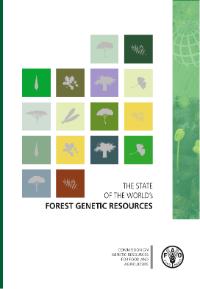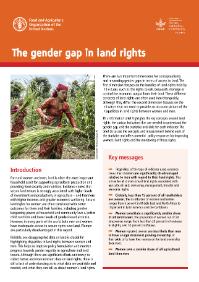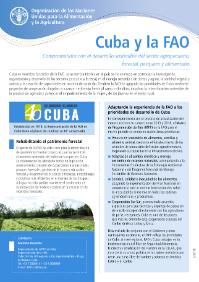Focal point
Location
The Food and Agriculture Organization of the United Nations leads international efforts to defeat hunger. Serving both developed and developing countries, FAO acts as a neutral forum where all nations meet as equals to negotiate agreements and debate policy. FAO is also a source of knowledge and information. We help developing countries and countries in transition modernize and improve agriculture, forestry and fisheries practices and ensure good nutrition for all. Since our founding in 1945, we have focused special attention on developing rural areas, home to 70 percent of the world's poor and hungry people.
Members:
Resources
Displaying 526 - 530 of 5074The State of the World’s Forest Genetic Resources (SOW-FGR)
À la découverte des forêts
Ce guide de l’élève magnifiquement illustré a pour objectif de présenter aux enfants de 10 à 13 ans les différents aspects et rôles des forêts. Il accompagne et complète le guide de l’enseignant À la découverte des forêts, et s’associe au programme scolaire en matière de science, géographie et citoyenneté, entre autres.
The gender gap in land rights
For rural women and men, land is often the most important household asset for supporting agricultural production and providing food security and nutrition. Evidence shows that secure land tenure is strongly associated with higher levels of investment and productivity in agriculture – and therefore with higher incomes and greater economic wellbeing. Secure land rights for women are often correlated with better outcomes for them and their families, including greater bargaining power at household and community levels, better child nutrition and lower levels of gender-based violence.
The gender gap in land rights
For rural women and men, land is often the most important household asset for supporting agricultural production and providing food security and nutrition. Evidence shows that secure land tenure is strongly associated with higher levels of investment and productivity in agriculture – and therefore with higher incomes and greater economic wellbeing. Secure land rights for women are often correlated with better outcomes for them and their families, including greater bargaining power at household and community levels, better child nutrition and lower levels of gender-based violence.
Cuba y la FAO
Cuba es miembro fundador de la FAO. La asistencia técnica en el país se ha centrado en potenciar la investigación,
organización y desarrollo de los sectores pesquero y forestal, en el manejo sostenible de tierras y aguas, la sanidad vegetal yanimal y la creación de capacidades en materia de nutrición. También la FAO ha apoyado las prioridades de Cuba medianteproyectos de cooperación dirigidos a alcanzar resiliencia frente al cambio climático, impulsar la intensificación sostenible de









